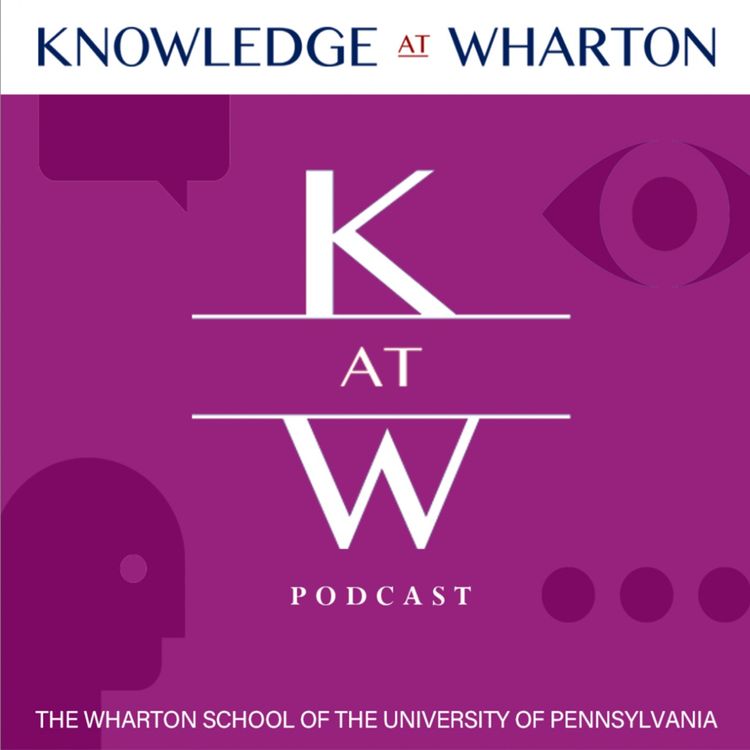Share

Knowledge at Wharton
How to Improve Work-life Balance for Caregiving Employees
•
Wharton’s Stephanie Creary speaks with Jennifer Andrews, head of equity and inclusion at Guardian, and Ellen Ernst Kossek, a distinguished professor of management at Purdue University’s Mitchell E. Daniels Jr. School of Business, about how companies can improve work-life balance for caregiving employees dealing with higher levels of stress, anxiety, and depression.
This episode is part of the Leading Diversity at Work series.
More episodes
View all episodes

2024 Ripple Rewind (Part 2)
27:45|In this special two-part episode, listen to curated excerpts from this year’s Ripple Effect podcast, where Wharton professors discuss a range of trending business topics.
2024 Ripple Rewind (Part 1)
16:39|In this special two-part episode, listen to curated excerpts from this year’s Ripple Effect podcast, where Wharton professors discuss a range of trending business topics.
The Future of Financial Technology
30:49|Professor Itay Goldstein welcomes Alesia Haas, CFO of Coinbase, and Michelle Lai, board member of Electric Coin Co, to discuss the ongoing fintech revolution. They examine the transformative role of technology in finance, from blockchain innovations to the future of digital currencies, and provide insights into how FinTech is set to evolve in the coming years.This discussion is part of a special series called “Future of Finance.”
The Regulatory Challenges of AI in Finance
30:01|Professor Itay Goldstein is joined by Tobias Adrian, financial counselor and director of the International Monetary Fund, to explore the regulatory challenges posed by the rapid adoption of artificial intelligence in finance. The conversation delves into the emerging risks AI introduces to the financial sector, the steps regulatory bodies are taking to mitigate these risks, and the balance between innovation and stability in global financial markets.This discussion is part of a special series called “Future of Finance.”
New Phenomena in Behavioral and Social Investing
29:50|Professor Itay Goldstein interviews Bloomberg columnist Matt Levine to examine the GameStop and AMC stock saga and the powerful influence of social media on market events. The discussion highlights the role of behavioral finance in shaping investor actions and how social trends can disrupt financial markets on a global scale.This discussion is part of a special series called “Future of Finance.”
Charitable and Political Giving | Pinar Yildirim
20:12|Wharton’s Pinar Yildirim untangles the relationship between charitable and political giving, which are both on the rise. This Ripple Effect podcast episode is part of a series on “Charitable Giving.”
The Future of Banking
33:23|Professor Itay Goldstein is joined by Hyun Song Shin, economic adviser and head of research at the Bank for International Settlements, and Loretta Mester, former President and CEO of the Federal Reserve Bank of Cleveland. Together, they explore the 2023 banking crisis, focusing on the collapse of Credit Suisse, Silicon Valley Bank, and other small to mid-level banks, while analyzing regulatory gaps and future protections for the banking system.This discussion is part of a special series called “Future of Finance.”
How to Prepare for Retirement and Live Your Best Life
50:37|Wharton’s Stephanie Creary speaks to Teresa Amabile, emeritus professor of business administration at Harvard Business School, and Kathy Kram, emeritus professor of management and organizations at Boston University’s Questrom School of Business, about how to prepare for retirement and other insights from their book Retiring: Creating a Life That Works for You.This episode is part of the Leading Diversity at Work series.
Elections and National Debt | Joao Gomes
13:30|In this year’s presidential election, both political parties are unwilling to tackle the burgeoning national debt. Wharton’s Joao Gomes warns that inaction is putting the country on a perilous economic path. This Ripple Effect podcast episode is part of the “Business of Elections" series.